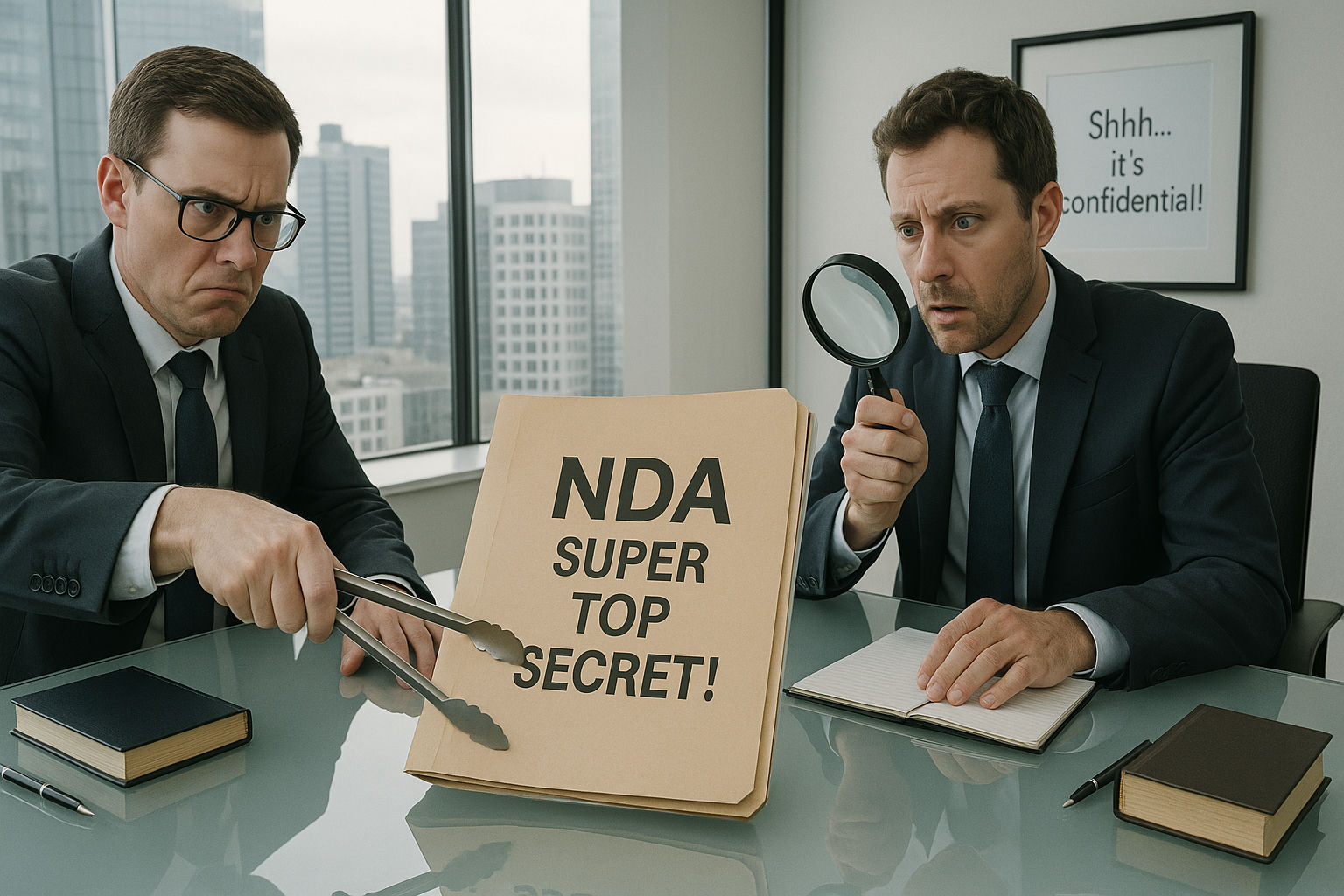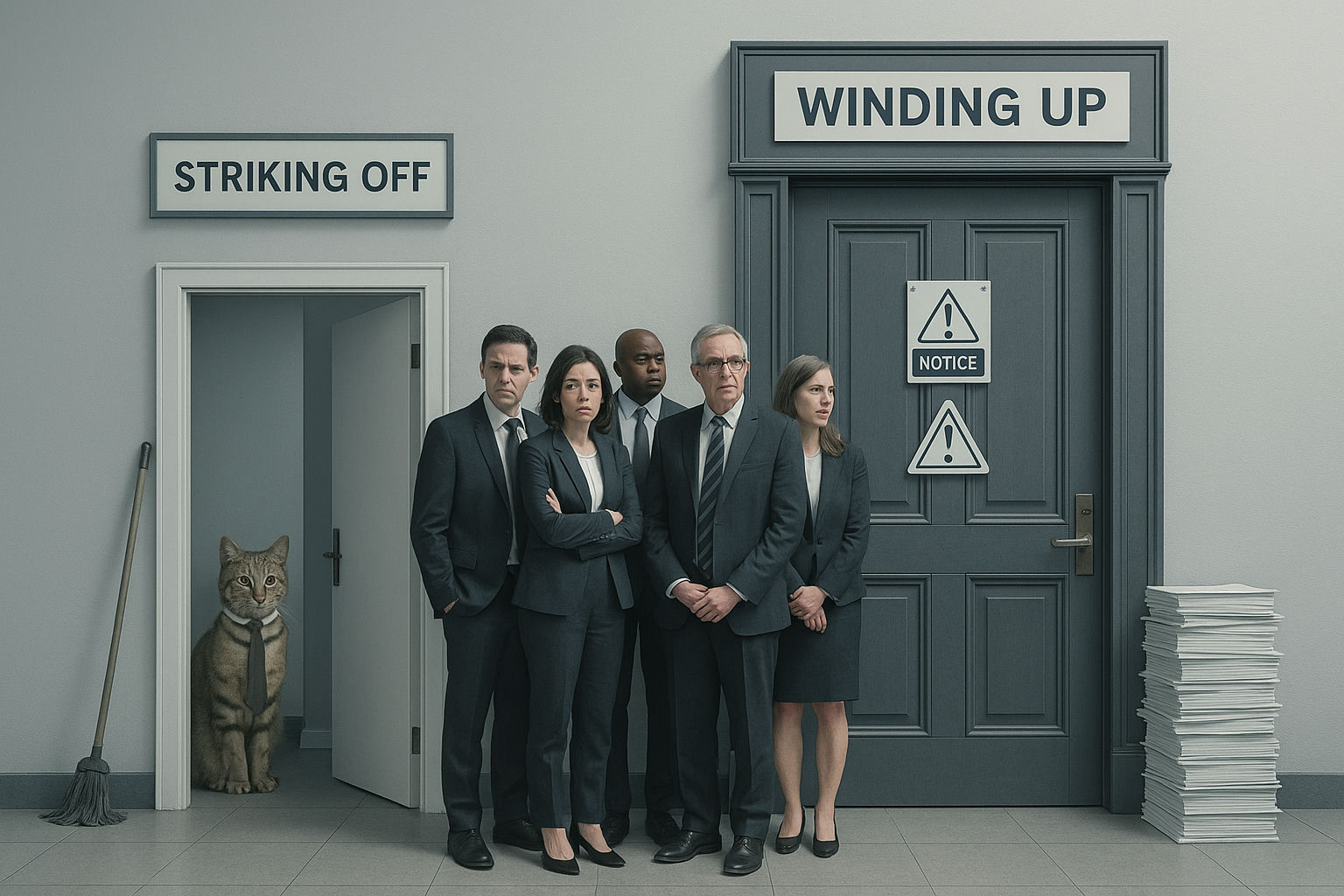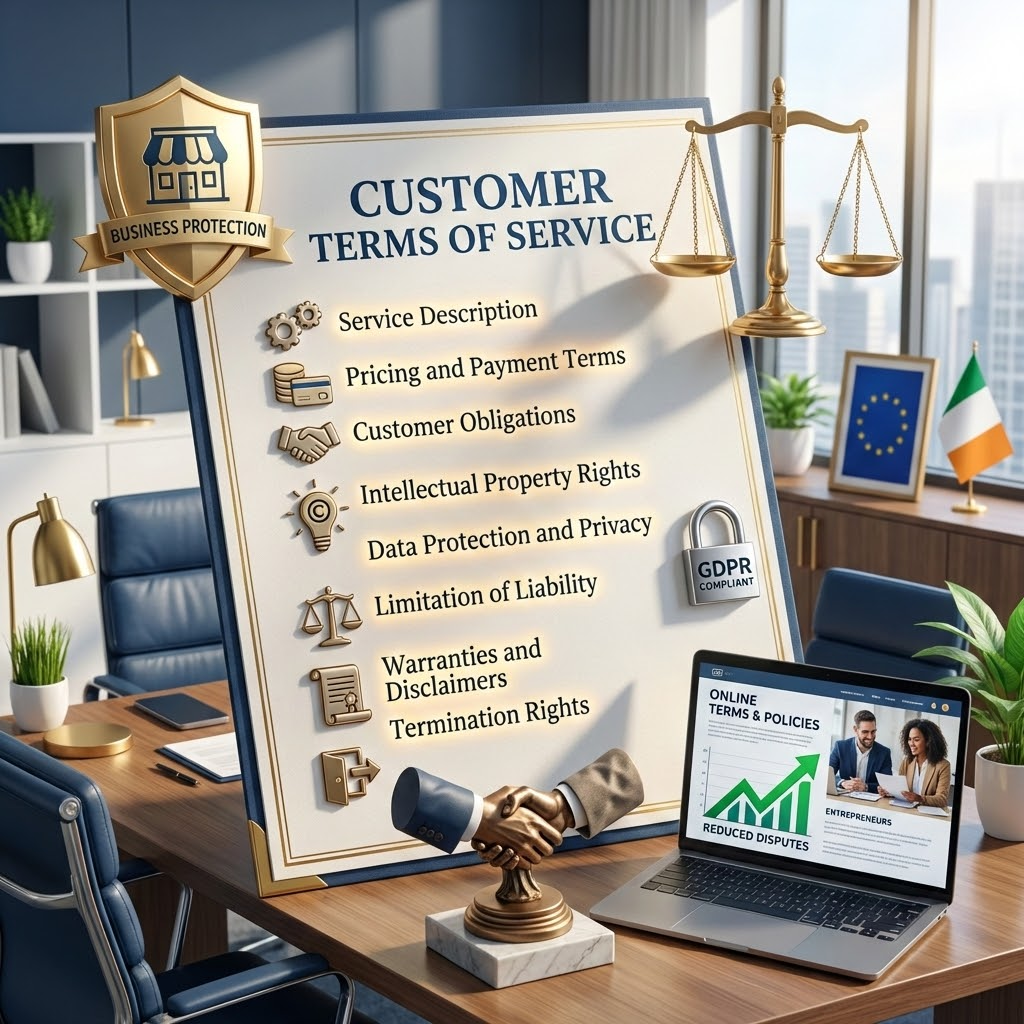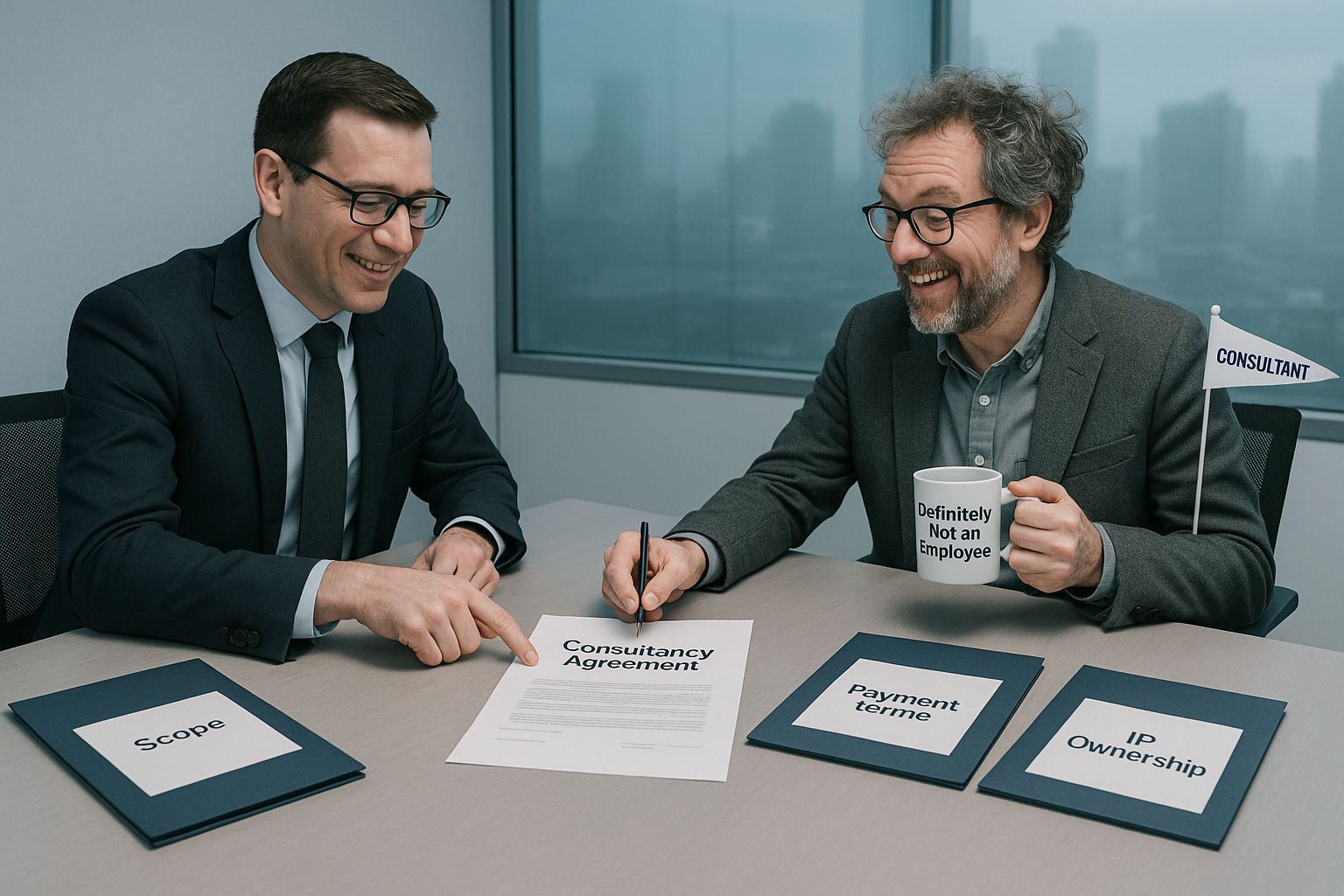Business owners and startup founders who are developing new products, services, or brands should understand the basics of intellectual property protection in Ireland.
This article is particularly relevant for entrepreneurs who are outsourcing development work or creating original content.
Key Takeaways:
- Copyright protection is automatic for original works, but its scope can be limited and easily circumvented through modifications
- Trademark registration requires careful cost-benefit analysis, especially for early-stage companies with limited resources
- Patents are less common in software businesses but can be valuable for unique technical innovations
- IP rights automatically belong to creators, not to those who commission the work, making IP assignment agreements crucial
- Founders should ensure all IP is properly assigned to their company, particularly when seeking investment

In Ireland, intellectual property (IP) protection is governed by various legislation, including the Copyright and Related Rights Act 2000, the Patents Act 1992, and the Trade Marks Act 1996.
You don't need to know all of them, you just need to know the below:
Copyright: Automatic but Limited Protection

While a novel or musical composition clearly qualifies for copyright protection, the boundaries become less clear with shorter works.
Can a single sentence be protected by copyright? It depends on its originality.
A common phrase like "Have a nice day" wouldn't qualify, but a highly distinctive sentence might.
While copyright protection is automatic, it can be relatively easy to circumvent.
Small changes to an original work might be enough to avoid infringement. For example, rewriting software code to achieve the same result using different methods, or telling the same story from a different perspective.
The key point is that copyright protects the expression of an idea, not the idea itself.
So, if anyone asks you is your code or your story IP protected (like some startup accelerator programmes constantly do), the answer for them is yes, the expression of the idea is automatically protected in its precise form, but if someone (or AI) changes just enough of the words or code around, then your protection is probably lost...
If you are wondering who owns the copyright to AI created works that you help create - your guess is as good as anyones. We are expecting a flood of AI / copyright court cases to come down the line over the next few years.
If you are using AI for your creative work, our best advice to you is to use it as a base and then add some originality to the content so that you should end up with your own automatic copyright protection of that work.
How do you know if you have done enough? You don't, until you win or lose your copyright case in court!
Trademarks: Balancing Protection and Cost

On the other hand, trademarks can be valuable assets, but registration costs can be significant.
In Ireland, basic trademark registration costs approximately €70 per class through the Intellectual Property Office of Ireland (IPOI), plus another €170 if it proceeds to registration.
However, professional fees and multi-jurisdictional protection can push costs into thousands of euros. Also, you might want to engage a professional for this as it's not something worth messing up - but that can cost around €500 per trademark.
For founders, this presents a strategic decision: protect your brand now or preserve capital for growth?
Consider whether competitors might realistically register your brand name or logo before you do if they hear about it. While this risk exists, you have to be realistic and weigh it against other pressing business needs when resources are limited.
Patents: High Value but High Bar

Patents are less common in software businesses but can be valuable for truly innovative technical solutions.
A software company might seek patent protection for a novel algorithm, unique processing method, or innovative technical architecture.
However, patents require substantial investment, often €15,000 or more for a European patent, and the process typically takes several years.
IP Ownership: The Creator's Right

One huge aspect of IP law that often surprises business owners is that copyright and design rights automatically belong to the creator, not the person who commissioned or paid for the work.
It is not an ideal situation to be trying to track down an Upwork or Fiverr consultant a few months or years after you have paid them to ask them to sign a scary legal agreement.
So to protect your business, you need IP assignment agreements signed by all creators, including:
- Freelance developers
- Design contractors
- Content writers
- External consultants
- Even co-founders
You need to get them to sign the document when you have all the leverage, i.e. before you pay them!
This is particularly important when seeking investment, as investors typically require clear IP ownership documentation.
Usually when investors ask you "show me your IP", they mean show me all of the IP Assignment Agreements that you have for any creator that touched your business along the way - so keep a good track of them and keep them organised in your data room.
If you have any questions, reach out to us below.

Stuart Connolly is a corporate barrister in Ireland and the UK since 2012.
He spent over a decade at Ireland's top law firms including Arthur Cox & William Fry.













